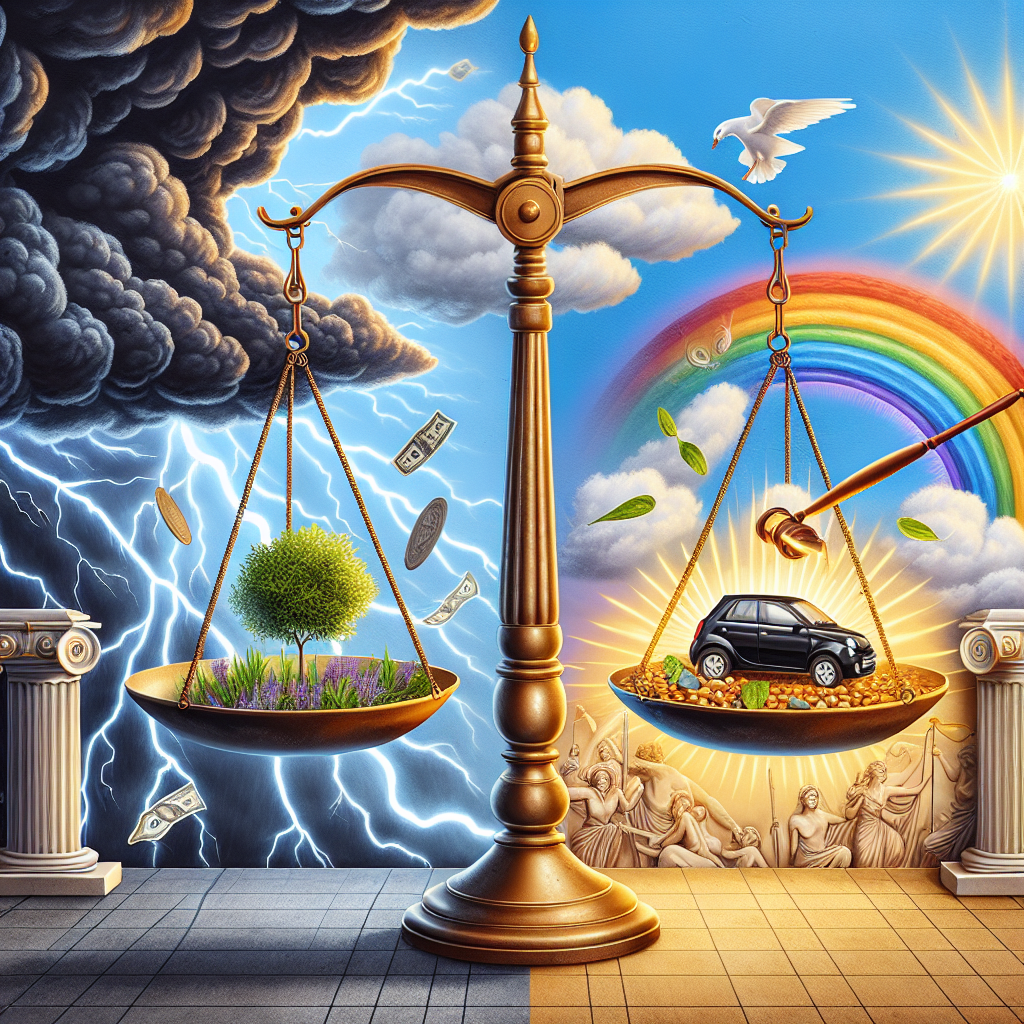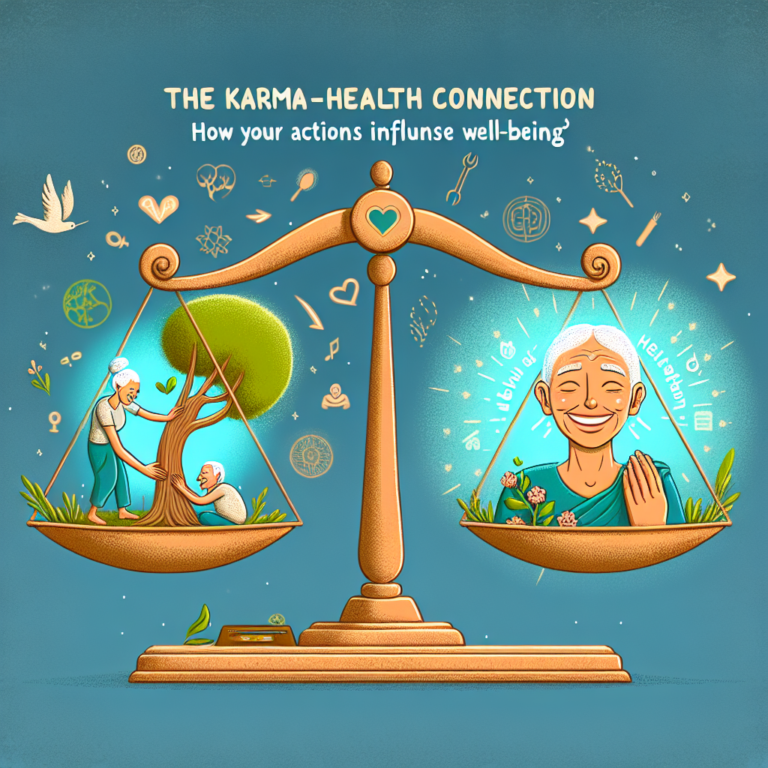Instant karma is a concept that many people resonate with; it reflects the belief that a person’s actions—good or bad—will have immediate repercussions. This idea is rooted in a variety of cultural and spiritual beliefs, yet it finds a particularly vivid expression in the stories we share about those who have committed nefarious acts, only to be confronted with swift justice, often within a comically short period of time. Instant karma serves not only as a moral compass guiding individuals toward righteousness but also as entertainment, illustrating the notion of poetic justice.
In this article, we will explore the phenomenon of instant karma, revealing its definition and significance, diving into insightful stories encapsulated in pop culture, and analyzing real-life events that epitomize this concept. By the end, we aim to provide a comprehensive understanding of instant karma and its implications, both socially and personally.
Understanding Instant Karma
What is Instant Karma?
Instant karma can be succinctly defined as the immediate return of a person’s actions, particularly negative ones. The term gained popular prominence after John Lennon, a member of the iconic band The Beatles, used it in his song “Instant Karma!” released in 1970. The essence of the phrase suggests that life is a cycle of actions and consequences, where individuals cannot escape the repercussions of their deeds.
Historical and Cultural Perspectives
The idea of retributive justice—where actions lead to corresponding reactions—is present in many cultures and religions.
- Hinduism: The idea of karma (though traditionally not instant) implies that one’s actions in this life or previous lives determine their future fortunes.
- Buddhism: Similar to Hinduism, Buddhism teaches that actions affect reincarnation and future experiences.
- Christianity: Concepts such as “what goes around comes around” can be found in various scriptures, emphasizing moral accountability.
Through these various lenses, we can see how many societies inherently acknowledge that bad actions often don’t go unpunished.
Real-Life Examples of Instant Karma
Stories from Everyday Life
One of the most fascinating aspects of instant karma is its ability to manifest in the most mundane situations. Here are a few anecdotes that highlight the idea that misdeeds can lead to immediate consequences.
- Case of the Reckless Driver: A driver speeding recklessly through an intersection to avoid red lights suddenly finds themselves stuck behind a herd of sheep crossing the road, forcing them to come to an abrupt stop.
- Unruly Pet Owner: A dog owner neglects to pick up after their pet in a public park only to have that same dog track mud all over their car’s interior.
- Tailgater Trouble: A tailgater tries to intimidate another driver by honking and weaving only to have their own car break down moments later, stranded on the side of the road.
These examples may seem trivial, but they underscore a fundamental principle of life: actions lead to consequences, and often those consequences are immediate and very relatable.
High-Profile Incidents
While everyday life is filled with stories of instant karma, there are also well-known cases regarding public figures. Here are some notable examples:
- The Celebrity Scandals: Celebrities often find that their bad behavior is met with immediate backlash, such as public shaming on social media, leading to damage to their reputation and livelihood.
- Corporate Malfeasance: Executives guilty of unethical business practices may enjoy short-term gains only to face immediate legal action or public outcry that serves to dismantle their careers.
These cases illustrate that no one is truly above the repercussions of their actions, fitting perfectly into the instant karma narrative.
The Role of Social Media in Instant Karma
Instant Gratification and Accountability
The rise of social media has drastically altered the way we experience and interpret instant karma. With platforms like Twitter, Instagram, and Facebook, the speed of information exchange is much faster than ever before.
- Viral Videos: Videos capturing instances of wrongdoing and their immediate consequences can go viral, making perpetrators infamous overnight.
- Public Accountability: Social media platforms have empowered individuals to hold others accountable for their actions, be they friends, colleagues, or public figures.
Yet, with this newfound power comes the potential for mob mentality, where individuals might rush to judgment without considering the full context surrounding an incident. This raises questions about justice and the potential for misinterpretation.
The Fine Line Between Justice and Revenge
While instant karma often aligns with the idea of justice, there exists a fine line between justice and revenge, particularly in cases that go viral. Examining this distinction is crucial:
- Justice: When bad deeds are met with appropriate consequences reflective of the wrongdoing itself.
- Revenge: When the reaction is disproportionate and seeks to inflict unnecessary suffering upon the individual.
This distinction is essential, particularly when considering the broader implications of instant karma as it relates to ethics and morality.
The Psychological Aspect of Instant Karma
Cognitive Dissonance
Cognitive dissonance describes the discomfort individuals feel when their actions contradict their self-perception. This notion is crucial in understanding why people may believe in instant karma.
- Individuals may behave in ways they later regret, leading to a strong belief in a moral universe where they are “paid back” for their transgressions.
- People often find comfort in the idea that wrongdoers will eventually face consequences, thus reassuring them that societal norms will be upheld.
Schadenfreude and Morality
Another psychological component at play in responses to instant karma is schadenfreude—the pleasure derived from another person’s misfortune. This response can be exacerbated by social media culture, where people indulge in the misfortunes of others, particularly those who have acted unethically.
- It can be linked to a sense of justice; individuals view these events as a form of natural balance being restored.
- However, it is crucial to evaluate whether this response is healthy or potentially toxic, as it can lead to increased negativity and conflict.
Dissecting Instant Karma Through Literature and Film
Literary Examples
Literature is replete with themes of instant karma, often utilizing characters who face immediate consequences for their actions. Here are a few examples:
- “Crime and Punishment” by Fyodor Dostoevsky: The protagonist, Raskolnikov, faces overwhelming guilt and consequence, emphasizing the idea that one cannot escape their own moral compass.
- “The Tell-Tale Heart” by Edgar Allan Poe: The narrator’s descent into madness and fear of discovery illustrates the psychological repercussions of wrongdoing.
Film and Television Representations
Similar themes can often be found in film and television, where characters meet their fates due to their poor choices.
- “Breaking Bad”: Walter White’s illegal activities eventually catch up with him, leading to direct and often grim repercussions.
- “The Shawshank Redemption”: Characters face the consequences for their actions in a deeply moral narrative, encapsulating the essence of justice and redemption.
The Philosophical Debate Surrounding Instant Karma
Ethics and Morality
The belief in instant karma raises crucial philosophical questions around ethics and morality. Is instant karma a comforting belief, or does it encourage a flawed understanding of justice?
- The Justification for Retribution: Some argue that instant karma serves as a form of retribution that is ultimately just and serves a moral function in society.
- The Complexity of Human Behavior: Others point out that human behavior is complex, and immediate consequences do not always lead to growth or understanding.
Implications on Society
In contemplating the implications of instant karma on society, we must consider:
- How beliefs in instant karma may influence social behavior, encouraging individuals to act with greater moral consideration.
- The potential downsides, including the risk of encouraging toxic behavior or mob mentality as retribution becomes the societal norm.
Why We Love Instant Karma Stories
The Element of Surprise
Humans are naturally drawn to stories, especially those that include unexpected twists or poetic justice. Instant karma stories often embody this element of surprise, showcasing how life can flip rapidly based on our actions.
- We find comfort knowing that justice can prevail, even if in unlikely circumstances.
- Storytelling allows us to navigate complex moral lessons in a relatable manner.
The Role of Humor
Many instant karma stories come with a humorous twist, serving as a light-hearted reminder of the unpredictability of life.
- Humor reinforces community bonds as we share laughter over the misfortunes of those who deserve it.
- It can serve as a coping mechanism, providing a way to engage with uncomfortable realities while maintaining a sense of joy.
Conclusion
In exploring the concept of instant karma, we delve into a rich tapestry of historical roots, cultural interpretations, psychological implications, and moral questions. The stories of instant karma serve not only to entertain but also to remind us of the deeper connections between our actions and their consequences. While the term may be often used in jest, the underlying principles of accountability and moral justice resonate with many.
In a world where information travels at lightning speed, and actions can lead to immediate responses, the phenomenon of instant karma may feel more relevant than ever. Our exploration raises critical questions about the ethics of justice, the psychology of our responses, and how narratives shape our understanding of morality in a rapidly changing society.
FAQs
What is the origin of the term “instant karma”?
The term was popularized by John Lennon in his song “Instant Karma!” released in 1970, which argues that our actions have immediate consequences.
Does instant karma operate on a universal level?
While many believe in some form of karmic justice at a personal level, interpretations vary widely across cultures and belief systems, with some viewing it as a spiritual experience and others as a social or psychological construct.
How can I cultivate a sense of instant karma in my own life?
Focusing on ethical behavior and accountability in your actions can help nurture a personal ethic that aligns with the principles of instant karma. Practicing mindfulness and empathy often cultivates a higher sense of awareness of how one’s actions impact others.
Is instant karma the same as revenge?
No, while it may appear similar on the surface, instant karma focuses on the natural balance of consequences as a result of one’s actions, whereas revenge implies a personal motive to inflict suffering as a form of retribution.
Can instant karma lead to unintended consequences?
Absolutely. While the idea of instant karma suggests a neat and poetic resolution, real-life consequences can be complex and varied, and sometimes judgments made in the name of instant karma can oversimplify or misrepresent a situation.
It seems like your message got cut off. Could you please provide more details or specify what kind of prompt you’re looking for? Whether it’s for writing, brainstorming, or something else entirely, I’m here to help!, #Instant #Karma #Bad #Deeds #Meet #Swift #Justice, #Instant #Karma #Bad #Deeds #Meet #Swift #Justice, 1736459299, instant-karma-when-bad-deeds-meet-swift-justice





